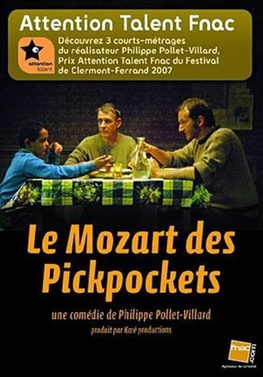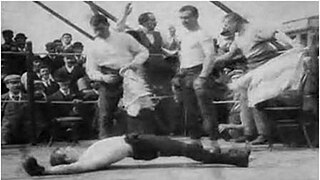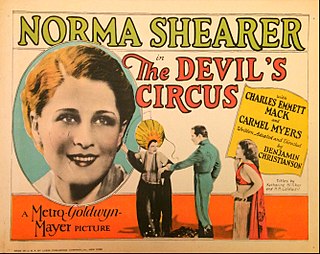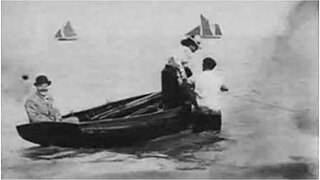
Oliver Twist; or, The Parish Boy's Progress, is the second novel by English author Charles Dickens. It was originally published as a serial from 1837 to 1839 and as a three-volume book in 1838. The story follows the titular orphan, who, after being raised in a workhouse, escapes to London, where he meets a gang of juvenile pickpockets led by the elderly criminal Fagin, discovers the secrets of his parentage, and reconnects with his remaining family.

Pickpocketing is a form of larceny that involves the stealing of money or other valuables from the person or a victim's pocket without them noticing the theft at the time. It may involve considerable dexterity and a knack for misdirection. A thief who works in this manner is known as a pickpocket.

Birt Acres was an American and British photographer and film pioneer. Among his contributions to the early film industry are the first working 35 mm camera in Britain (Wales), and Birtac, the first daylight loading home movie camera and projector. He also directed a number of early silent films.

Pickpocket is a 1959 French film written and directed by Robert Bresson. It stars Martin LaSalle, in his feature film debut, in the title role, and features Marika Green, Pierre Leymarie, and Jean Pélégri in supporting roles. It features a pickpocket who is drawn to crime, despite the intercession of his family, his friends, and even an empathetic policeman.

Bound and Gagged is a 1919 American silent film serial produced by George B. Seitz Productions and distributed by Pathé. It was a spoof of the clichéd melodramatic serials of the era.

The BFI National Archive is a department of the British Film Institute, and one of the largest film archives in the world. It was founded as the National Film Library in 1935; its first curator was Ernest Lindgren. In 1955, its name became the National Film Archive, and, in 1992, the National Film and Television Archive. It was renamed BFI National Archive in 2006.

Le Mozart des pickpockets is a 2006 French short film. Written and directed by Philippe Pollet-Villard, it won the 2007 Oscar for Best Live Action Short Film. It was the only French submission in the category. Two days before, the film also won its national César Award.
Little Miss Smiles is a 1922 American drama film directed by John Ford. The film is considered to be lost.

The Boxing Kangaroo is an 1896 British short black-and-white silent documentary film, produced and directed by Birt Acres for exhibition on Robert W. Paul's peep show Kinetoscopes, featuring a young boy boxing with a kangaroo. The film was considered lost until footage from an 1896 Fairground Programme, originally shown in a portable booth at Hull Fair by Midlands photographer George Williams, donated to the National Fairground Archive was identified as being from this film.

Boxing Match; or, Glove Contest is an 1896 British short black-and-white silent documentary film, produced and directed by Birt Acres for exhibition on Robert W. Paul's peep show Kinetoscopes, featuring a staged boxing match between Sergeant-Instructor Barrett and Sergeant Pope with a round, an interval and a knockout. The film was considered lost until footage from an 1896 Fairground Programme, originally shown in a portable booth at Hull Fair by Midlands photographer George Williams, donated to the National Fairground Archive was identified as being from this film.

The Devil's Circus is a 1926 American silent drama film directed by Danish director Benjamin Christensen, based upon his screenplay. The film stars Norma Shearer and Charles Emmett Mack. It was the first of seven films directed by Christensen in the United States, and one of only four of those films that have not been lost. The film involves a young female trapeze artist who is in love with a pickpocket.

Performing Animals; or, Skipping Dogs is an 1895 British short black-and-white silent documentary film, produced and directed by Birt Acres for exhibition on Robert W. Paul's peep show Kinetoscopes, featuring one dog jumping through hoops and another dancing in a costume. The film was considered lost until footage from an 1896 Fairground Programme, originally shown in a portable booth at Hull Fair by Midlands photographer George Williams, donated to the National Fairground Archive was identified as being from this film.

Landing at Low Tide is an 1896 British short black-and-white silent comedy film, produced and directed by Birt Acres for exhibition on Robert W. Paul's peep show Kinetoscopes, featuring a lady falling into the water as she is helped from a small boat. The film was considered lost until footage from an 1896 Fairground Programme, originally shown in a portable booth at Hull Fair by Midlands photographer George Williams, donated to the National Fairground Archive was identified as being from this film.

The Magician is a 1898 French silent trick film directed by Georges Méliès, featuring a wizard, a Pierrot and a sculptor in a rapid series of substitution splices. The film is, "another exercise in the art of the jump-cut," according to Michael Brooke of BFI Screenonline, "in the tradition of Georges Méliès' earlier A Nightmare and The Haunted Castle ."

Her Bridal Night-Mare is a 1920 American silent comedy film from the Christie Film Company. It was one of Colleen Moore's first comedy films. The film still exists and has been released on DVD.

Miss de Vère was an 1896 French silent film directed by Georges Méliès. It was released by Méliès's Star Film Company and is numbered 45 in its catalogues. The performer, the "Miss de Vère" of the title, is the dancer and actress Constance Elise de Vere. She was, along with Clementine de Vere, a daughter of Charles de Vere, an Englishman who had worked as a professional magician and who was then the owner of a Paris shop selling conjuror's supplies, electrical equipment, and films. Constance Elise de Vere, known professionally as Elise de Vere, married Frank Joseph Godsol in Newark, NJ on December 8, 1917.

Lost in Transit is a lost 1917 American silent drama film directed by Donald Crisp and written by Gardner Hunting and Kathlyn Williams. The film stars George Beban, Helen Jerome Eddy, Pietro Sosso, Vera Lewis, Henry A. Barrows, and Frank Bennett. The film was released on September 3, 1917, by Paramount Pictures.

Saddle Pals is a 1947 American Western film directed by Lesley Selander and written by Robert Creighton Williams and Jerry Sackheim. The film stars Gene Autry, Lynne Roberts, Sterling Holloway, Irving Bacon, Damian O'Flynn and Charles Arnt. The film was released on June 6, 1947, by Republic Pictures.
The Rescue on the River was an 1896 French short silent film directed by Georges Méliès.

The Phantom Horseman is a 1924 American silent Western film directed by Robert North Bradbury and written by Isadore Bernstein. The film stars Jack Hoxie, Lillian Rich, Neil McKinnon, Wade Boteler, William McCall, and Ben Corbett. The film was released on March 3, 1924, by Universal Pictures.


















